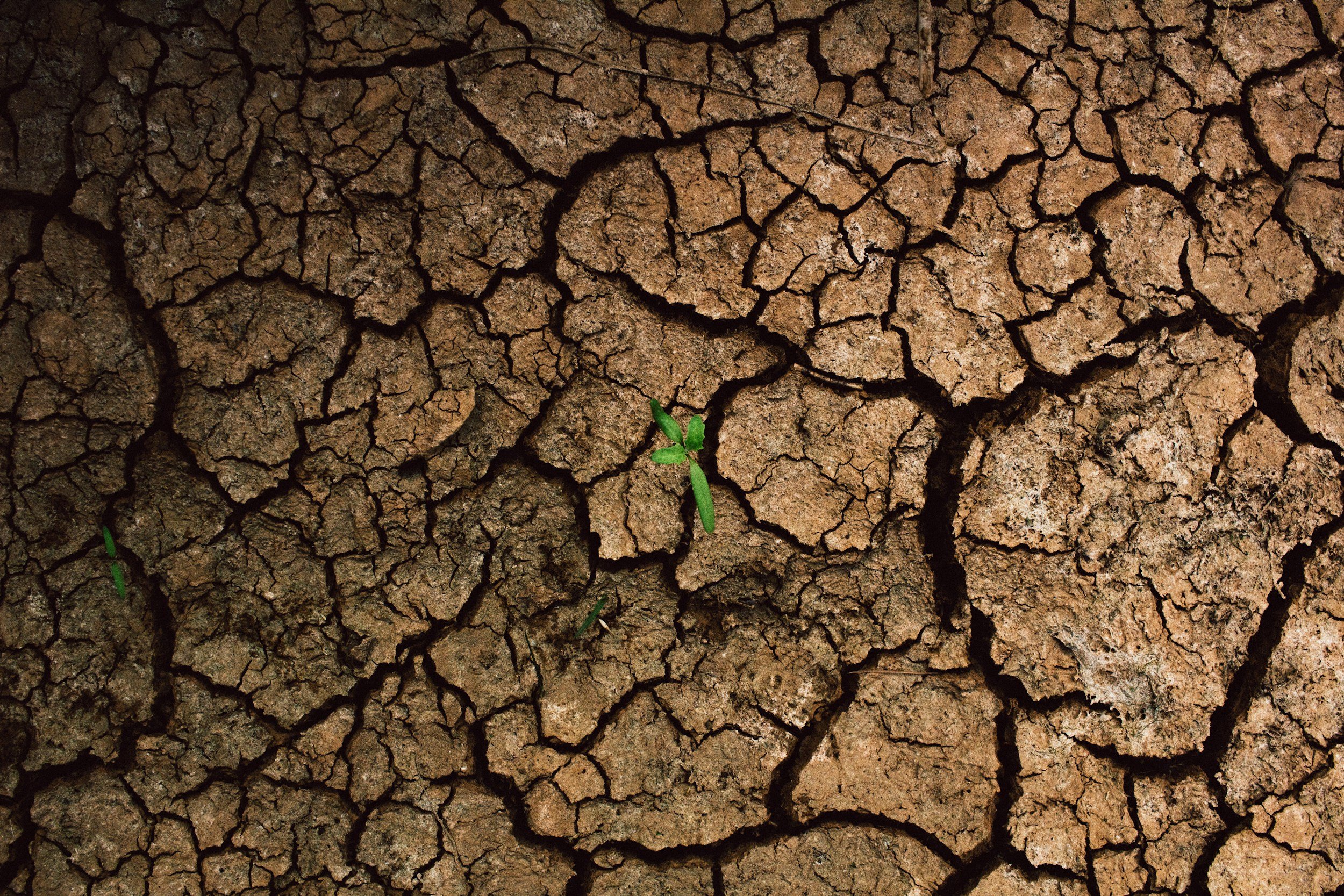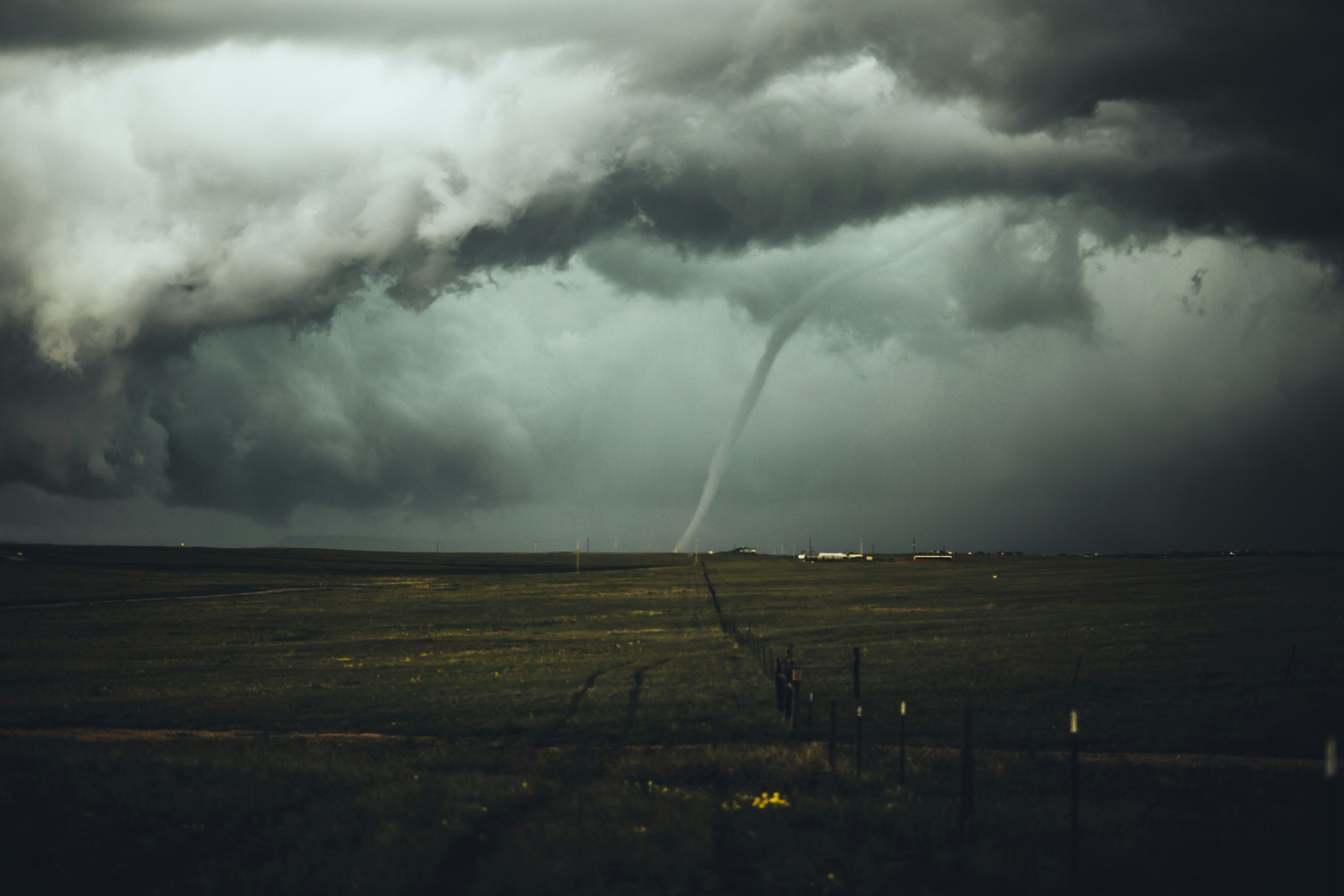
DVA Deep Dives
Climate Change & Environmental Impact
Buddhist Ethics and the Environmental Impact of Our Food Systems
Plant-based diets are gaining popularity due to their positive environmental impact and mitigation of climate change. Buddhism also emphasizes the importance of living in harmony with nature and minimizing harm to living beings, making plant-based diets a natural fit for those practicing.
Many people see climate change as an ecological issue, an economic issue, or a social issue. We know that human actions are at fault. In this sense, climate change is an ethical issue. Climate change is happening because of what we have valued and how we have conceived of our identity as human beings on this planet. The values have come from a dominant industrial value. Climate change isn’t just a matter of what we can do, it’s a matter of what we should do.
We are currently living in a time of great crisis. We are confronted by the gravest challenge that humanity has ever faced which is a result of the ecological consequences of our own actions. The scientific consensus concludes overwhelmingly that human activity is triggering environmental breakdown on a planetary scale. Many scientists have concluded that the survival of human civilization is at stake. We are currently facing global warming which is happening much faster than previously predicted. We are living in the midst of the 6th mass species extinction in which wildlife populations have decreased by 69% in the past 50 years and we’ve managed to cut the total fish population in half. We’ve lost a major portion of the Amazon rainforest. Sea levels are rising because glaciers are melting, and since we are overfishing our oceans we have caused disastrous imbalances in the ocean’s biodiversity. We are polluting our freshwater and our air. Across the planet, people are experiencing fires, floods, heat waves, droughts, and famine on scales not experienced before. Most of the new diseases that have emerged in humans over recent decades are of animal origin and are related to the human quest for more animal-sourced foods. We know we must curb GHG emissions, minimize methane, decrease deforestation, and more. We know we need to change.
We have reached a critical juncture in our biological and social evolution. There has never been a more important time in history to bring the resources of Buddhism to bear on behalf of all living beings. The four noble truths provide a framework for diagnosing our current situation and formulating appropriate guidelines— because the threats and disasters we face ultimately stem from the human mind, and therefore require profound changes within our minds. If personal suffering stems from desire, aversion, and ignorance (from the three poisons of greed, ill will, and delusion) the same applies to the suffering that afflicts us on a collective scale. Our ecological emergency is a larger version of the perennial human predicament. Both as individuals and as a species, we suffer from a sense of self that feels disconnected not only from other people but from the Earth itself. We need to wake up and realize that the Earth is our mother as well as our home. (Brightway Zen, 2015). We are unquestionably connected to her.
The Buddha emphasized ethics, śila, as a fundamental training for his monks. His monastic code of ethics was constructed around the idea of ahimsa, or non-violence. Essentially, the Buddha taught that ethical actions are those arising from a commitment to non-harm, gentleness, and simplicity. If we extend śila to our relationship to land, water, natural resources, and animals, non-harm, gentleness, and simplicity become points of reflection for change-making. Later Buddhist traditions developed rules of conduct, oriented towards compassion, such as the Bodhisattva precepts. These precepts extend from the idea that bodhicitta, or wise compassion, is the ground of ethical action and speech. We too can ground our activism, social engagement, and resistance in wise compassion. We can make our activism not about what we are working against, but what we are working for. (Baker, 2019)
With this environmental crisis, we also have great opportunities that come in many forms. Individually, we must adopt behaviors that increase everyday ecological awareness and reduce our “carbon footprint”. Even without fossil fuels, we will exceed our 565 gigatons CO2e limit by 2030, all from raising animals. The United Nations has urged the world to become more meat and dairy-free for some years now, and a recent University of Oxford Study found that eating a vegan diet can be the "single biggest way" to reduce one's environmental impact on the earth. A UN report stated that a global shift towards a vegan diet is vital to save the world from hunger, poverty and the worst impacts of climate change and they found that a full 18 percent of global warming emissions come from raising chickens, turkeys, pigs, and other animals for food. Animal agriculture is the # 1 cause of water pollution, water use, deforestation of the rainforest, depletion of our ocean aquatic life, 415 ocean dead zones, species extinction, habitat destruction, and pandemics.

We are facing an environmental global crisis of unprecedented dimensions that is impacting all of life on this planet we call home.
This personal activity will not by itself be sufficient to avert future climate catastrophes. We must also make institutional changes. This is a reason why Dharma Voices for Animals is also working with Buddhist Centers and organizations worldwide. Together we must, out of our compassion for the well-being of our animal kin, our planet, and the health of our community, ensure as much as possible that the food served or allowed at Buddhist Centers, organizations, and all sangha gatherings is free from animal products.
We must shift our diets away from climate-intensive foods like animal products and adopt planet-friendly plant-based diets.
We have a brief window of opportunity to take action, preserve humanity from imminent disaster, and assist in the survival of the many diverse and beautiful forms of life on Earth. Future generations, and the other species that share the Earth with us, have no voice to ask for our compassion, wisdom, and leadership. We must serve to be the voice of animals because they do not speak our human languages, therefore they cannot make their voices heard in society and in the Buddhist community.
So why is DVA so set on focusing on eating plant-based when there are so many human decisions/choices that impact our planet?
Eating is something many of us do a few times a day and changing our eating habits is a personal choice that we have immediate control over. Deciding to eat vegan is a personal action we can each take individually right now and because this personal action directly and immediately impacts other sentient beings, this action makes sense. As mentioned above, food-related emissions alone will push us past global climate targets. Feeding people plant-based foods directly instead of cycling crops through animals first would mean growing far fewer crops, which would conserve vast amounts of land, water, and energy and mitigate climate change. Even though we can’t do everything, we must do something. And if you can’t transition to fully plant-based, make eliminations. Again, a shift towards a plant-based diet is one of the most important actions the public can take to reduce our impact on the climate.
Why Vegan and not just Vegetarian?
The egg and dairy industries have a huge impact on the environment in many of the same ways as the meat industry does. Their manure produces greenhouse gas emissions and seeps into groundwater or runs off into surface water carrying excess nitrogen and phosphorous, which can contaminate drinking water or cause algal blooms and die-offs of aquatic species. They consume large amounts of feed which requires huge of amounts of water and land (habitat that could be left for native species). Plant-based alternatives such as tofu and non-dairy milk have a much lower footprint than their animal counterparts. The honey industry impacts native bee populations by spreading diseases and by competing with them for food which then in turn impacts ecosystems.
Our society has conditioned us to consume the products of animal suffering without looking deeply, but the Buddha’s teachings, common to all Buddhist traditions, attempt to help us wake up and to live lives of wisdom and compassion more deeply. Because all of these industries have standard unethical practices, if you choose to eliminate these products, you extend your circle of compassion to include all of the egg-laying hens, dairy cows and calves, and honey bees, therefore causing less harm to these sentient beings. One of the easiest and most effective personal choices we can make is to remove emission-intensive animal foods from our diet as much as possible whenever possible by transitioning towards and switching to a plant-based diet.
Choosing a plant-based or vegan lifestyle is the most compassionate choice we can make. It’s the simplest daily action we can take to lower our climate impact and it spares the suffering and death of thousands of farmed animals while protecting biodiversity, habitat, and our planet’s climate for the sake of all humans and all wild animals.
On behalf of life on our planet, we are hoping to inspire, encourage, and support our Buddhist community to move towards more plant-based meals.
-
Princeton (2018): GHG
cost of diet can be equivalent to the “consumption of all goods, including energy”Oxford, Standford, University of Minnesota (2020):
“Global food system emissions could preclude achieving the 1.5° and 2°C climate change targets.”U N Environment Programme (2021): Biodiversity: "Humanity must shift towards more
plant-based diets”University of Copenhagen (2019) [16 studies]: Vegan diet has the least environmental impact
[GHG, Land, Water]Oxford - Joseph Poore (2018) [570 studies, 38,000 farms]: “Diet change
is the single biggest way to reduce your greenhouse gas emissions, land use, impact on biodiversity, water use, and nitrogen and phosphorous pollution”Oxford International Food Policy Research Institute (2018): low-meat
dietary patterns reduced GHG emissions, nitrogen application, phosphorous application, cropland use, and freshwater useIPCC (2022): “a transition towards more plant-based consumption and
reduced consumption of animal-based foods, particularly from ruminant animals, could reduce pressure on forests and land used for feed, support the preservation of biodiversity and planetary health (Theurl et al. 2020; FAO 2018c), and contribute to preventing forms of malnutrition”Oxford, University of Minnesota, Stockholm University, et al (2018): “GHG emissions cannot be sufficiently mitigated without dietary changes towards more plant-based diets”
Johns Hopkins University (2015): “Immediate and substantial reductions in wasted food and meat and dairy intake, are imperative to mitigating catastrophic climate change”
Loma Lina University (2014): The low animal product diet required 4 times less water, 3 times less energy, 5 times less fertilizer, and 1.2 times less pesticides.
World Wildlife Fund, Living Planet Report (2022): Humans have wiped out most of the wild animals on this planet in just the past 50 years.
Oxford (2023): “The study found that, compared to meat-heavy diets, vegan diets resulted in 75 percent less land use, 54 percent less water use, and 66 percent less biodiversity loss.”

Suffering can be increased by one’s actions and decreased by one’s awareness practices.

Resources to Dive Deeper: Environment & Climate Impact
-
-
-Veganism is ‘single biggest way’ to reduce our environmental impact, study finds
-The Hidden Costs of Cheap Meat
-Meat accounts for nearly 60% of all greenhouse gases from food production, study finds
-‘Gigantic’ power of meat industry blocking green alternatives, study finds
-How Eating Less Meat Could Help Save the Planet
-Eating Less Meat Is the Most Effective Way to Fight Climate Change
-How Much Does Animal Agriculture Contribute to Climate Change?
-Why Eating Meat Is Bad for the Environment and Climate Change, Explained
-
Eating Animals, Jonathan Safran Foer, 2009
The Omnivore's Dilemma: A Natural History of Four Meals, Michael Pollan, 2006
The Food Revolution: How Your Diet Can Help Save Your Life and Our World, John Robbins, 2001
Farmageddon: The True Cost of Cheap Meat, Philip Lymbery, 2014
We are the Weather, Jonathan Safran Foer
-
- Cowspiracy: The Sustainability Secret, Kip Andersen & Keegan Kuhn, 2014
- Seaspiracy, Ali Tabrizi, 2021
- Countdown To Year Zero, Jane Velez-Mitchell, 2019
- Racing to Extinction, Louie Psihoyos, 2015
- H.O.P.E. What You Eat Matters, Nina Messinger, 2019
-
Food & Water Works - https://www.foodandwaterwatch.org/
Faunalytics- https://faunalytics.org/
-
Plant Based News (Instagram - @plantbasednews)














